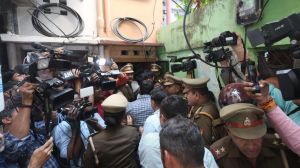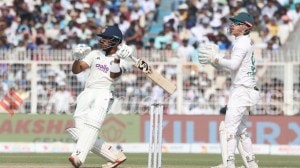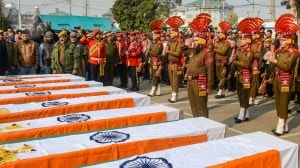City of Memories
When best-selling author Simon Winchester put together an anthology on Kolkata, the book, in essence, said that even if Kolkata is dirty and smelly and chaotic (“a public nightmare,” “a truly infernal city”), it still casts a spell over those who stop here.

An anthology of essays, stories, poems and memoirs, celebrates the Kolkata of our collective memory
When best-selling author Simon Winchester put together an anthology on Kolkata, the book, in essence, said that even if Kolkata is dirty and smelly and chaotic (“a public nightmare,” “a truly infernal city”), it still casts a spell over those who stop here. Winchester’s Calcutta was about contradictions and surprises that even the most seasoned resident of the city could uncover in her crumbling corners and dusty lanes.
But when Kolkata-based author, Amit Chaudhuri set out to put together an anthology on the city, he could ill-afford such clichés. “I wanted to talk about the city’s reality. Our book is not a comfortable looking back at the past,” says Chaudhuri.
Memory’s Gold, is an anthology that brings together essays, stories, poems and memoirs of people who have shared an ardent relationship with Kolkata. “From Henry Meredith Parker’s early nineteenth-century vignettes of life in the city to Ulrike Draesner’s take on a metropolis of the 21st century, from Tagore’s elegiac reminiscences of his childhood home to Sandipan Chattopadhyay’s hallucinogenic depictions of nights spent on the footpath, the book celebrates Calcutta itself,” says Chaudhuri.
While the city may never cease to shock those who pass through, it also manages to delight and enthrall those who are brave enough to make an effort to look. “I hope the book does justice to some of Kolkata’s many facets. It is very difficult to pin down a city through a few experiences,” claims the author. Which is why the anthology includes the migrant experience through Manas Ray’s write-up on migration and Pradip Bose’s take on Durga Pujo celebrations. It also gleans information out of the historical pieces of literature like Michael Madhusudan Dutt’s letter which talks about the city’s extraordinary literary acumen—a shopkeeper who reads the Meghnadvad Kabya and engages the poet in a discussion on blank verse. “It’s amazing how the city rose to prominence in the 19th century and managed to be one of the most important urban centres of Asia till the middle 20th century. That itself is a wonderful story,” claims Chaudhuri.
The anthology includes the usual suspects too—essays by Günter Grass and V.S. Naipaul, Sunil Gangopadhyay and Shakti Chattopadhyay, among others. Nostalgia driven write-ups like Sasthi Brata’s loving ode to College Street and the Coffee House and Jug Suraiya’s equally tender take on Park Street, celebrate the Kolkata that resides in our collective memory.
Putting together the collection was a much deliberated effort. “I spent a long time identifying the pieces. I wanted pieces which were both potent and pertinent,” says Chaudhuri. His efforts took him to friends and acquaintances suggested pieces that they thought were apt. He personalised the collection by writing introductions to each section of the book. “Putting an anthology together is no mean task. It involves days and days of reading, asking people around and then dividing them according to the theme,” says Chaudhuri.
The title of the book suggests that the book is nostalgia driven, but Chaudhuri claims otherwise. “Memories are not necessarily about nostalgia. Memory is also about the present. A city means nothing if it has no memories,” sums up Chaudhuri.





- 01
- 02
- 03
- 04
- 05

























